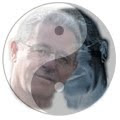The point I'm at in the book he's discussing the concepts of risk management and how best to approach new technologies, as well as the potential for both good and bad inherent in them. The thing that struck me the hardest, though, is the recognition that some of the effects of a technology aren't apparent until they approach ubiquity, that is until a certain critical mass of people or entities are using them.
So . . . in that regard I find myself wondering what social media is going to look like when everyone is using smartphones and some of the, say, location-based services are both easier to use and more powerful in terms of bringing people together. Anyone have any ideas on what the future may hold? What will it mean to restaurants and others who depend on a fickle public when everyone joins the conversation?



